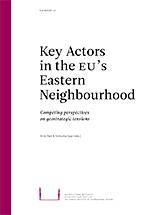The Ukraine crisis exposed the collision between the EU’s and Russia’s goals in their shared neighbourhood and highlighted the limitations of the EU’s liberal, confrontation-averse and often technocratic approach. It also forced the Union to address the unintended geopolitical implications of its Eastern Partnership policy covering Ukraine, Belarus, Moldova, Armenia, Azerbaijan and Georgia. The fate of these countries is closely connected to questions over the future shape and rules of the European security order.
This FIIA report sheds light on the geostrategic tensions and different action logics at play in the EU’s Eastern neighbourhood. The report explores and compares the interests and policies of major states and organizations in the region (the EU, Russia, the US, Turkey, China and the OSCE) and assesses the interaction between the different actors. It also considers the implications of the geopolitical context for some of the countries in the region, notably Ukraine and Belarus, with the aim of providing an original, comprehensive analysis of the international, regional and local levels.
Such a comprehensive analysis of the broader geostrategic context of the contested region between the EU and Russia highlights the need for the EU to develop a broader understanding of the factors at play in the region. The EU foreign policy should not shy away from confrontation at any price. The report highlights the need for a more comprehensive, confident and proactive EU foreign policy in the Eastern neighbourhood.



